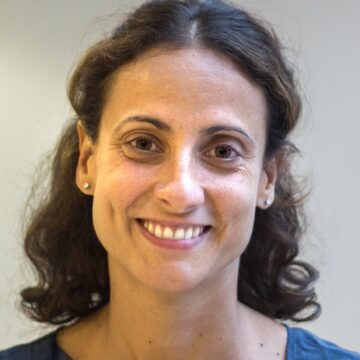Despite the contradictions between the EU member states, they become aware that they would eventually get more from joint actions than from satisfying one hundred percent of their desires, said Nathalie Tocci, adviser to the EU High Representative for Foreign Affairs and Security Policy Federica Mogherini during the expert discussion at the Valdai Discussion Club.
Over the past few years the EU has rearranged the approach to international affairs and seeks to build its foreign policy through pragmatism, while not abandoning the core values, said Nathalie Tocci, adviser to the EU High Representative for Foreign Affairs and Security Policy Federica Mogherini during the expert discussion at the Valdai Discussion Club, titled «EU Foreign Policy: Goals and Prospects. What Does It Mean for Russia?»
Crises faced by the EU in recent years, especially in the areas of economy, security and migration, have pushed the Europeans to greater unity, Tocci said. «In my opinion, such an alliance would be impossible without a series of external crises that the European Union faced. We can say, that never before there has been a real incentive to act together in matters of defense and security. Now here it is «, she noted.
According to Tocci, in the area of foreign policy the new philosophy of the EU is pragmatism. «We have to look at the world pragmatically, but in dealing with our approaches to reality, it is necessary to remain faithful to our values,» she said. The EU’s policy towards Russia is based properly on considerations of pragmatism, Tocci said.
At present, Russia and the EU have more clarity than three years ago, she noted. The parties understand better their interests and each other’s intentions, and this is an absolute plus, despite the more confrontational nature of relations, the adviser to the EU High Representative for Foreign Affairs and Security Policy believes.
«I do not think that Russia should be perceived as an enemy for the sake of the Europeans’ unity,» Tocci said. «These relations will always be difficult, but should not be hostile.»
Tocci spoke in detail on the common EU security policy. In recent years, she said, the EU has faced a «constellation of factors» in this area that have not taken place in the past. This led to a sharp revision of the policies of a number of countries, such as Germany, which made a «complete mental switch» on defense matters. Speaking about the possibility of creating a unified European army, Tocci stressed, that the EU unites in the sphere of security.
«Virtually no one in the EU can do anything independently, except for the armies of the two countries, one of which leaves the European Union. Whether Europeans like it or not, they have to unite: both because of crises, and because of the requirements for greater security on the part of EU citizens, » Tocci said.
During the discussion, the problems of refugees, security issues in the Balkans and the situation in Ukraine were touched upon. Nathalie Tocci pointed out, that since 2015 the EU faced a fundamentally new situation regarding refugees, but managed with difficulty to formulate new ways to solve it. «The burden needs to be divided,» she said, commenting the reluctance of some member states to adopt a system for the distribution of refugees according to quotas. «If you want to have rights, in particular freedom of movement of people, goods and services within the EU, you need to bear a certain responsibility.» At the same time, she admitted, that attempts to force certain countries to accept refugees according to quotas would not succeed.
Speaking about the situation in the Balkans, Tocci noted that no one in the EU doubts, that the republics of the former Yugoslavia will sooner or later join the European Union, the only question is how this process will proceed. The procedure of accession should bring tangible benefits to the citizens of these countries, she stressed.
As for Ukraine, the EU, according to Tocci, can begin to take any serious steps to resume the stalled Minsk process after the end of the electoral cycles in the key countries of the bloc — France and Germany — not earlier than in the autumn.
In conclusion, Tocci once again stressed that, in her opinion, the EU has overcome the period of the «existential crisis». «Of course, today there are contradictions between the EU member states, but they began to be aware that they would eventually get more from joint actions than from satisfying one hundred percent of their desires,» she noted.










